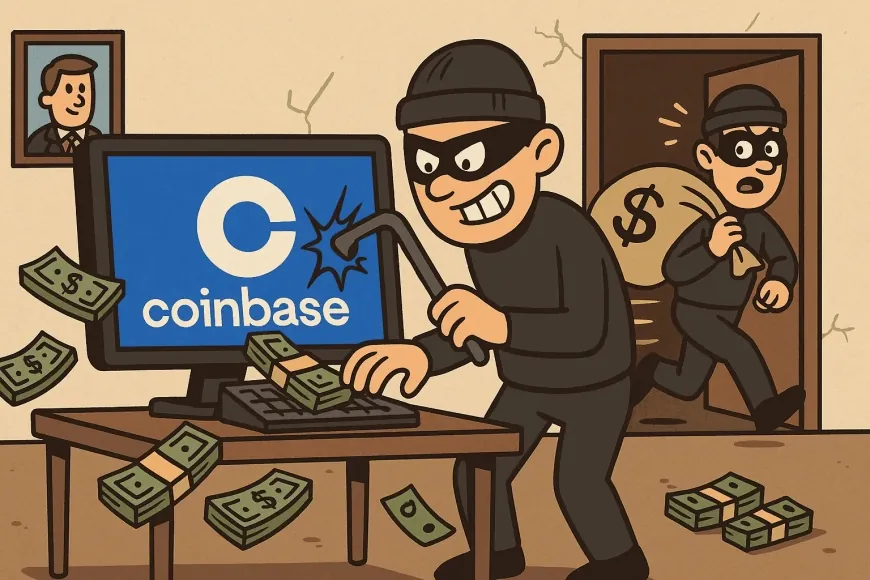Coinbase Hack Hits 97,000 Users as Exchange Faces Up to $400M in Losses
Coinbase reports $400M security breach impacting 97,000 users; internal access exploited as company pledges reimbursements and boosts protections.

Coinbase, one of the largest cryptocurrency exchanges in the U.S., revealed a major data breach that affected about 1% of its monthly active users—roughly 97,000 people. The security incident, disclosed in a May 14 SEC filing, could cost the company between $180 million and $400 million.
The breach occurred after overseas Coinbase employees were bribed, giving hackers access to internal systems and sensitive user information. Although the attackers demanded a $20 million ransom—which Coinbase declined to pay—the company instead offered the amount as a reward for information leading to their arrest.
What Information Was Compromised?
Coinbase has confirmed that no passwords, two-factor authentication codes, or crypto keys were accessed. However, hackers did obtain key personal details such as full names, physical addresses, partially masked Social Security numbers, and some banking information.
This type of data can be used in social engineering schemes—where fraudsters impersonate legitimate entities like Coinbase to trick users into handing over security credentials or transferring crypto into fake “safe” wallets.
Coinbase Promises Reimbursement and Reform
All affected customers were notified via email, and Coinbase has committed to reimbursing any verified financial losses. In response to the breach, the company plans to:
-
Enhance its anti-fraud infrastructure
-
Implement stricter security protocols
-
Open a dedicated support hub in the U.S.
-
Terminate employees involved in the breach
Despite these efforts, the incident raises pressing concerns about the safety of storing funds on cryptocurrency exchanges, which don’t always offer the same level of protection as traditional financial institutions.
Crypto vs. Traditional Banking Protections
Major banks and brokerages offer regulatory protections that crypto platforms do not. Under the Electronic Funds Transfer Act (Regulation E), banks are required to reimburse customers for unauthorized electronic transactions. Additionally, FDIC insurance protects deposits, and SIPC coverage safeguards brokerage assets in case of institutional collapse.
With crypto exchanges operating outside these frameworks, customer funds remain at greater risk when stored on centralized platforms.
Steps to Strengthen Crypto Account Security
Investors using cryptocurrency exchanges should take extra precautions to avoid financial loss in the event of future breaches:
-
Avoid phishing and scam attempts: Be cautious of unsolicited messages or links, even if they appear legitimate. Always double-check URLs and sender information.
-
Review bank and credit activity regularly: Monitor accounts for unauthorized transactions and consider placing a credit freeze if personal data may have been exposed.
-
Use a non-custodial wallet: Transferring assets into a wallet you control personally adds a level of protection that centralized platforms can’t provide. Hardware wallets, stored offline, are especially secure.
-
Explore crypto ETFs: Exchange-traded funds tied to Bitcoin and Ethereum allow investors to gain exposure through traditional brokerage accounts. These are managed by financial institutions responsible for secure custody of the underlying assets.
Increased Attention on Crypto Exchange Security
The Coinbase hack serves as a reminder that cybersecurity is a critical part of investing in digital assets. While the crypto industry continues to mature, individual investors must stay proactive in safeguarding their holdings. Whether by securing funds in personal wallets or exploring ETF options, the path to safer crypto investing starts with awareness and precaution.
Also Read: Coinbase Hit by Insider Data Breach, Hackers Demand $20M Ransom in Bitcoin
































































